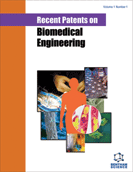Abstract
There has been a continuous effort for more than two decades to generate universal red blood cells that can be used for transfusion without the need of matching the blood type. Three distinct strategies are being explored so far to achieve this goal. These include (i) deletion of the antigenic determinants of the blood group antigens on the surface of RBC by enzymatic methods, (ii) masking of the antigens from the cognate antibodies by conjugating bulky polymers to RBC membrane proteins, and (iii) design of bioengineered RBCs for ex vivo production in which the expression of the group specific antigens has been specifically manipulated. This article evaluates and compares the merits as well as the potential limitations of these approaches as well as the useful patents in the field of generation of universal red blood cells.
Keywords: Universal red blood cells, removal of blood group antigens, ex vivo synthesis of red blood cells, hematopoietic stem cells, PEGylation, masking of blood group antigens, extension arm, thiolation mediated PEGylation, direct PEGylation
 1
1

